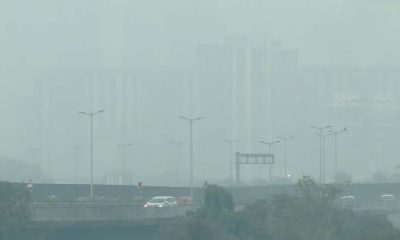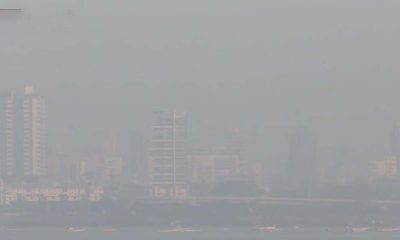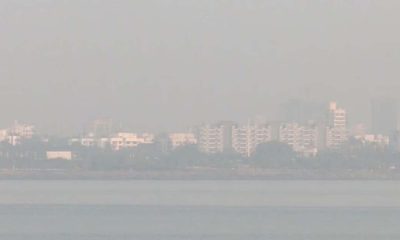Maharashtra
Maharashtra has 35K bridges and their upkeep poses nightmarish challenge

Maharashtra has a stupendous 35,000-plus big and small bridges on roads in village, towns, cities, state or national highways, posing mind-boggling challenges for their regular upkeep and maintenance, with multiple agencies involved, but recording barely 100 structures crashing since 2000, top officials said.
As per government data, under the state’s Public Works Department (PWD) jurisdiction, there are 146 small, 105 big and five long bridges (total 256) from the pre-Independence era, some dating back to over 350 years and still functional.
In the post-Independence era, the state recorded massive development since 1957, with around 16,000 small, 2100 big and 100 long (total 18,200) bridges being constructed.
Besides, there are some 12,000, including 2,000 major bridges, on the national highways crisscrossing the state, an estimated 4,000 (total 16,000) in various civic bodies’ jurisdictions, like some 450-odd in Mumbai, not counting another huge number of bridges on the railway networks.
Despite the huge numbers of bridges, in the past 22 years, barely around 100 medium or small have crashed – 75 percent of them comprising masonry design and the rest raft design – in different parts of the state.
The worst crash was the washout of 106-year-old British-era masonry bridge on the heavily-flooded Savitri River near Mahad in Ratnagiri on August 2, 2016, which swept away two ST buses and around 10 other private vehicles with the death toll touching 40.
There have been other smaller crashes in Mumbai and other parts of the state in the past two decades though with lesser casualties or fatalities.
As per Indian Road Congress (IRC) norms, a “small bridge” spans 06-60 metres, a “big bridge” is 60-200 metres and a “long bridge” is 200 metres plus and can go upto a few kms in length, each posing unique challenges for their upkeep and safety.
These bridges comprise a variety of designs, architecture styles and materials depending on their location, whether linking hills, mountains, passing over rivers, streams, drains (nullah), creeks, the sea (the Rajiv Gandhi Bandra Worli Sea Link or the upcoming Mumbai Trans Harbour Link), flyovers, road over-bridge, foot over-bridge, etc.
“There are prescribed SOPs for checks, routine, pre-monsoon and post-monsoon maintenance for all bridges, but with a staff of around 5,000, its possible to cover only around 35 per cent of the bridges in a year,” revealed a senior PWD officer, requesting anonymity.
As per the SOPs, any initial complaints go to the concerned local PWD office which sends out teams to inspect, and if there are serious problems, specialised team with experts from within and outside (like IITs, IIE, etc.) examine it scientifically, said the officer, who has personally inspected around 1,000 bridges in the past two decades in some of the most hazardous terrain.
Then, the cumbersome work of making reports, proposals, budget estimates, sourcing the funds, setting the time-frame, etc, takes place, and again depending on the urgency of the work, it may or may not be prioritised as paucity of finance remains the biggest hurdle.
A former PWD Chief Engineer of Bridges had suggested to the state government and Union Minister for Roads & Highways Nitin Gadkari to rope in the 30,000 students from civil engineering colleges studying in their two final years to help in the inspection works.
“They can form a part of the local PWD inspection teams and theoretically can inspect all the 35,000-bridges in the state in just a couple of days. This exercise can be done twice a year to reveal all the maintenance flaws and potential risks to any structure,” he said.
The students would be guided by the PWD experts, and it would have proved an invaluable academic field exercise with some incentives like grace marks or extra grades in their exams, etc, but there was no movement on his suggestion, rued the ex-CE.
Prescribing a regular “good health check-up” for all bridges, especially the old ones, a senior Highway Department officer appreciated the Indian Railways for their “constant vigil and dedicated teams carrying out daily, weekly, monthly inspections or biannual surveys of all their bridges” to ensure safety of the hundreds of trains hurtling around the country with passengers and cargo.
“Unfortunately, this zest is severely lacking among the states’ PWDs and virtually non-existent for the national highways authority, though the local civic bodies barely pass out on this count,” the officer said.
Touching on the Savitri River bridge crash, the PWD officer said it was nicknamed a “green bridge” as its fa�ade was completely covered with shrubs, bushes, creepers and small plants – but spelling a “red alert” from the safety aspect.
“Such overgrowth is rarely taken into account, another lurking danger is the dredging of sand from the water-bed in the vicinity, blatantly violating norms which weaken the bridge foundations and make it prone to a crash, overloading during peak hours which hasten the wear-and-tear, allowing vehicles to ply even when the flood levels touch or cross the red level marks, as it happened in the Savitri River case,” he said.
Officers from the Highways Department, PWD, civic bodies and others ruled that “unless regular inspection and maintenance” is carried out for all bridges – majority are already over 40-50 years old – there can be repetitions of the recent Morbi (141 dead) or the 2003 Daman & Diu (26 dead) type tragedies, with more risks added as new bridges come up practically every month in the massive expansion of the roads and railways in the country.
The inspection tasks are now considerably easier with the applications of computers, drones, satellites or other modern gadgets to scan the bridge health without physical presence, though the latest technological advancements come at a high price and are deployed on hardly one percent of all the structures in the state, the officials said.
Maharashtra
BMC Elections 2026: Nomination Forms Of Candidates Across Parties Rejected After Scrutiny Ahead Of Mumbai Civic Body Polls
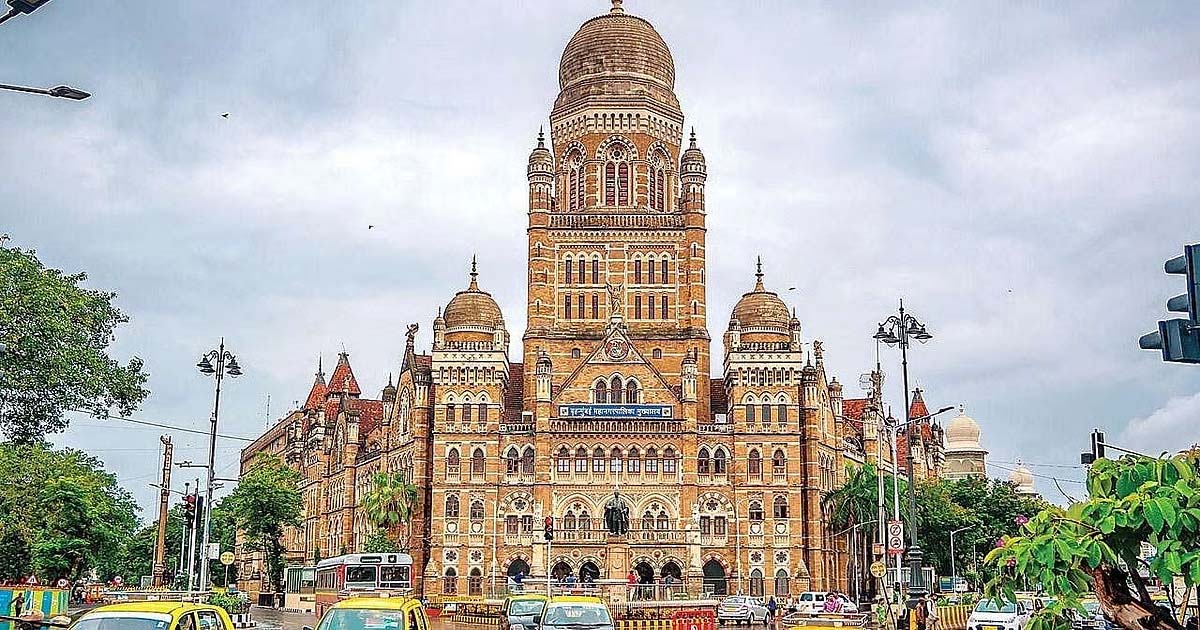
Mumbai: Scrutiny of nomination papers for the Brihanmumbai Municipal Corporation (BMC) elections has led to the rejection of several candidates across parties due to incomplete documents, errors in forms and failure to submit mandatory certificates, election officials have said.
A total of 2,516 nomination papers were filed till December 30, the final day. As the forms were examined on Wednesday, those of candidates from the Congress, BJP, AAP, NCP (SP), Bahujan Samaj Party (BSP) and several independents were rejected.
As most parties finalised seat-sharing arrangements and issued ‘A’ and ‘B’ forms (key documents to file nominations) only in the last two to three days to prevent rebellion, a rush of nominations was witnessed on December 29 and 30.
Officials said delays in finalising candidatures, last-minute documentation, non-submission of caste validity certificates and incomplete details were among the reasons behind the rejections.
Officials said candidates whose nominations were rejected would not be able to contest the elections. They added that the final electoral picture would become clearer after the completion of all statutory procedures related to the scrutiny process.
According to official data, the highest number of rejected nominations belonged to independent candidates, though major parties were also affected.
In the case of NCP (SP), the nomination filed by its candidate Bharat Danani from ward 109 was rejected during scrutiny.
One BSP candidate’s nomination was rejected in F-South ward (wards 200 to 206) as the proposer appeared twice on the form.
The nomination of Congress candidate Manoj Kanojiya from ward 226 could not be accepted as his caste certificate was not submitted, said officials. AAP candidate Navnath Lalge, who had filed his nomination from ward 226, also suffered a setback on the same ground.
Both BJP candidates from wards 211 and 212 saw their nominations rejected due to incomplete documents and other deficiencies, said officials.
In ward 109, six nominations that were rejected belonged to independents. All 12 nominations rejected in G-South wards (193 to 199) were independents, while several others were rejected in T division (wards 103 to 108), L ward (wards 163, 171 and 175) and other areas.
In ward 226, five nominations were filed. While the Congress and AAP candidates were disqualified for not submitting caste certificates, the nominations of BJP candidate Makarand Narvekar and two independents were found valid.
There are 227 electoral wards in BMC. The metropolis has 1,03,44,315 voters, including 55,16,707 male and 48,26,509 female voters. The number of “Other” voters is 1,099, according to officials.
In the last civic polls in 2017, the undivided Shiv Sena had won 84 seats. Of these winners, 46 have now switched to Deputy Chief Minister Eknath Shinde-led Shiv Sena. As many as 16 former corporators from other parties, including the Congress, NCP and SP, have also joined the Shiv Sena.
The BJP had won 82 seats last time. In the past eight years, six former corporators from other parties have joined it.
In 2017, the Congress had bagged 31 seats, followed by NCP (9), MNS (7), SP (6), AIMIM (2) and six others.
Elections to 29 municipal corporations, including the BMC, will be held on January 15, and votes will be counted the next day. The nomination process began on December 23 and ended on December 30, while January 2 is the last date for withdrawal of nominations. The final list of candidates will be published on January 3.
Maharashtra
BMC Elections 2026: 2,516 Nominations Filed For 227 Seats Ahead Of Mumbai Civic Polls
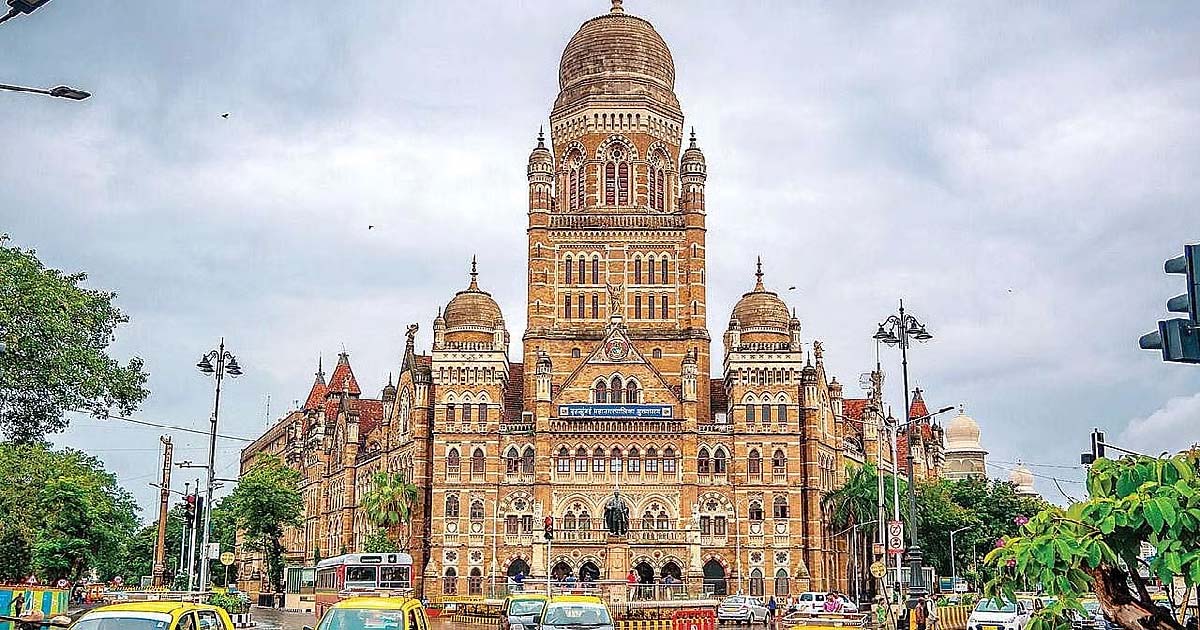
Mumbai: A total of 2,516 nominations has been submitted for the 2026 BMC elections by the all the aspirants, including all political parties and independent candidates. There are 227 seats in the BMC. Out of the total, 2,122 were submitted on Wednesday, December 30, the last day of submitting the nominations papers and affidavits.
The election department has appointed 23 Returning Officers (RO) across Mumbai’s 26 administrative wards. As per the data the state election commission, total 11,392 forms were distributed by the ROs, of which 2,516 were submitted.
See the below chart for number of nominations at each RO office with wards list.
The the ROs office which got highest number of candidates nomination for the BMC elections include: M East ward RO with 182 nominations, M East+M West wards with 164 nominations, A+B+C wards with 150 nominations, G North with 137, K West with 133, H East and S ward with 125 each and N ward with 123.
The lowest number of candidate nomination has been submitted for R Central with 51, C+D wards with 58 and R North ward with 60 nominations.
Today (Thursday, December 31) the BMC election department will scrutinize the nomination submissions and the list will be declared as soon as the process is complete. If any forms are found with improper documentations, affidavits, they will be rejected on technical grounds.
The last day of nomination withdrawal is January 2, and the final candidates list with symbol will be declared on January 3.
All the political parties which saw defections, discontent among its workers for denial of ticket or loss of seat under seat sharing formulas, have time till January 2 to tackle the rebellion in their ranks.
Party wise nominations and seat sharing
In the sharing formula, the BJP will contest on 137 seats and Shiv Sena (Shinde) on 90.
The Congress released a list of a total of 143 candidates, and VBA 62. The Congress-VBA alliance will give the remaining seats to smaller alliance parties like the Rashtriya Samaj Party.
The Shiv Sena (UBT) and MNS alliance has announced a list of 135 and 53 candidates, respectively, till the last reports.
The NCP (Ajit Pawar) announced its third and final list of 30 candidates on Tuesday, taking the total fielded in Mumbai to 94. Notably, 52 women candidates (referred to by the party as ‘Ladki Bahin;) will contest the elections, as the NCP prepares to enter the fray with full strength and capacity. The number of candidates fielded by Ajit Pawar-led NCP is more than Shinde Sena.
Meanwhile, the Sharad Pawar-led NCP announced its second list of four candidates, with the party fielding candidates on 11 seats in Mumbai.
Crime
Palghar Crime: Naigaon Police Arrest 2 Youths For Highway Robbery In Vasai East, Juvenile Also Involved
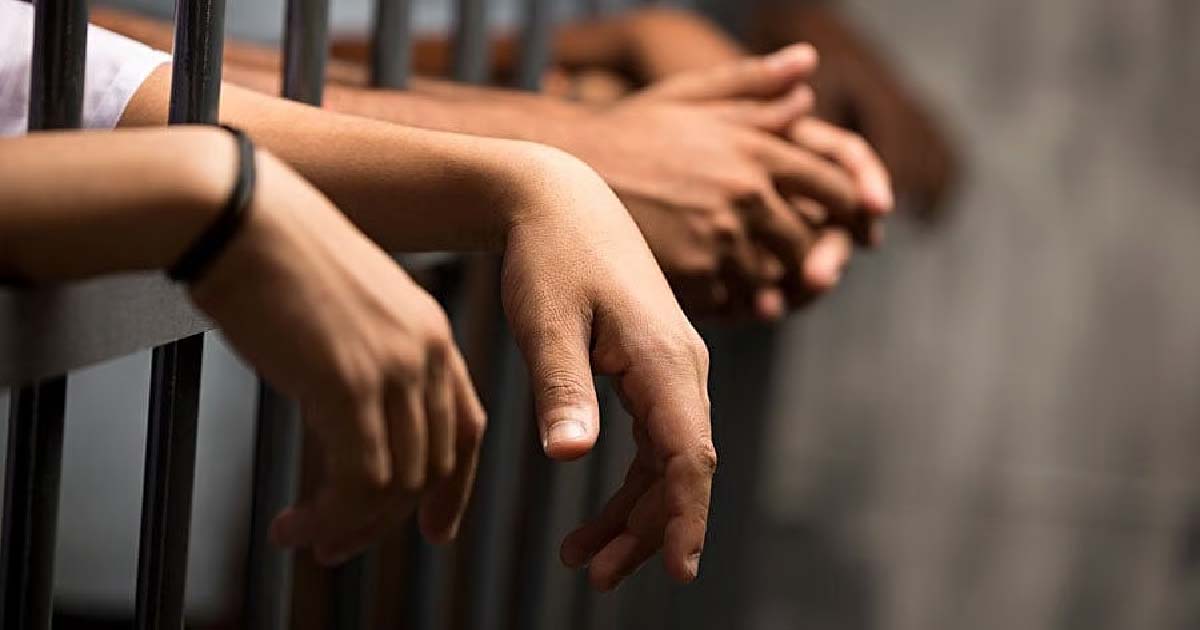
Palghar, Maharashtra, Dec 30: The Crime Detection Team of Naigaon Police Station has arrested two youths in connection with a case of forcible robbery that took place on the Mumbai–Ahmedabad National Highway in Vasai East earlier this month. A juvenile was also found to be involved in the crime.
According to police, the incident occurred on the night of December 21, 2025, near the Royal Garden Resort, close to the end of the Sasunavghar bridge on the Ahmedabad-bound carriageway at Vasai East in Palghar district.
The complainant was walking on the road when a white Maruti Suzuki S-Presso car stopped near him. Three unknown men, aged between 20 and 25 years, allegedly assaulted him with a steel bracelet and punches.
The accused threatened the victim, demanding cash and his mobile phone, and warned him of dire consequences if he resisted. They forcibly took his cash, mobile phone and charger.
The assailants also obtained the password to the victim’s Google Pay application under threat and later warned him not to inform anyone before fleeing the scene.
Following the complaint, Naigaon Police registered a case under relevant sections of the Bharatiya Nyaya Sanhita.
The senior police inspector of Naigaon Police Station formed two special teams from the Crime Detection Unit. After a detailed investigation, police apprehended Wasiulla Salim Khan (21) and Ranjit Sandeep Jaiswal (19), both residents of Naigaon, Vasai East.
During interrogation, the accused confessed to committing the robbery along with a juvenile in conflict with law. Police recovered two mobile phones and cash worth ₹31,700 from the accused. The car, valued at approximately ₹5 lakh, which was used during the commission of the crime, has also been seized.
-

 Crime3 years ago
Crime3 years agoClass 10 student jumps to death in Jaipur
-

 Maharashtra1 year ago
Maharashtra1 year agoMumbai Local Train Update: Central Railway’s New Timetable Comes Into Effect; Check Full List Of Revised Timings & Stations
-

 Maharashtra1 year ago
Maharashtra1 year agoMumbai To Go Toll-Free Tonight! Maharashtra Govt Announces Complete Toll Waiver For Light Motor Vehicles At All 5 Entry Points Of City
-

 Maharashtra1 year ago
Maharashtra1 year agoFalse photo of Imtiaz Jaleel’s rally, exposing the fooling conspiracy
-

 National News1 year ago
National News1 year agoMinistry of Railways rolls out Special Drive 4.0 with focus on digitisation, cleanliness, inclusiveness and grievance redressal
-

 Maharashtra1 year ago
Maharashtra1 year agoMaharashtra Elections 2024: Mumbai Metro & BEST Services Extended Till Midnight On Voting Day
-

 National News1 year ago
National News1 year agoJ&K: 4 Jawans Killed, 28 Injured After Bus Carrying BSF Personnel For Poll Duty Falls Into Gorge In Budgam; Terrifying Visuals Surface
-

 Crime1 year ago
Crime1 year agoBaba Siddique Murder: Mumbai Police Unable To Get Lawrence Bishnoi Custody Due To Home Ministry Order, Says Report





